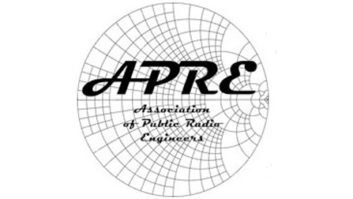Saying radio draws from a more local pool than TV does for its advertising, some broadcasters are questioning why the FCC wants to extend the obligation to post public files online, as television does, to radio.
LeSEA Broadcasting Corp. owns both radio and TV properties and has experienced the “problems and pitfalls” with the FCC’s system, which went online in August 2012. In comments filed on the topic with the commission, LeSEA says the agency should address whether requiring radio to post their public files online would really benefit that station’s audience and consider the burdens on licensees.
“Specifically, in response to a Petition for Rulemaking filed by national advocacy groups seeking, ostensibly, easier access to information about who is paying for political advertising on cable and satellite systems, the commission simply lumped in radio,” writes LeSEA.
“Broadcast radio listeners are nearly all local, they do not need the FCC’s website to find information about their local stations. Listeners can go to the local main studio to view a station’s public file, or if a station’s studio is not located within its community of license, listeners can call the station, have the file contents described to them, request copies, and receive them at no charge,” notes the company.
The online public file database appears to benefit national advocacy groups and individuals who do not listen to and are not connected to a radio station’s local service area in any way, says LeSEA, which adds that being able to peruse public files online makes it easier for these groups to review public files in order to file complaints about any rules violation, according to the broadcaster. “Even meritless complaints delay, and sometimes even prevent, application processing at the FCC.”
The Association of Minnesota Public Educational Radio Stations asks the commission to either reject the concept or exempt NCEs and allow these stations to continue to maintain a physical public file, saying “AMPERS stations simply don’t have the resources to post all of the information from their public files to the FCC’s online database.”
NCEs are prohibited from accepting political spending and therefore should be exempt, notes AMPERS, which adds the organization supports transparency and its stations operate that way. But if the objective is to give taxpayers and watchdog organizations easier access to monitoring political spending, it makes no sense to create this extra tedious process for NCE stations since NCEs can’t accept political spending.
Before imposing another obligation on radio, Entertainment Media Trust suggests the FCC first determine whether the agency has the sufficient financial and technical resources to “even entertain” this possibility, noting that the TV transition to an online public file system was spread out over several years and initially only involved only 432 full-power stations.
Now, there are 1,782 full-power TV stations, according to the FCC’s database.
“The total number of these [TV] stations represents only about 14% of the total number of licensed radio stations, according to the current totals, says EMT, referring to the 15,425 total radio stations as of June 30. “[A]dding radio stations to the online filing system would represent a 700% increase in necessary resources by the FCC in terms of server capacity, programming requirements and other technical and financial resources,” notes AM station licensee EMT.
In its notice, the FCC noted that NAB felt the online requirement hadn’t been too much of a burden for TV stations.
EMT says requiring radio stations to place their public files online would be a greater burden for them than it was for television stations. Broadcast radio “continues to struggle financially,” without the significant advertising revenues generated by television stations, especially during election cycles. Though radio has “stabilized,” the industry is dominated by small group owners, who have less financial and staff resources at their disposal than does TV, according to EMT.
EMT suggests the FCC consider a voluntary system, allowing smaller stations the option of continuing to maintain their current physical public file systems.
The original concept of requiring stations to post their public files online as part of a database maintained by the FCC is to make it easier to see who’s buying television political ads. The Campaign Legal Center, Common Cause and the Sunlight Foundation petitioned the FCC for a rulemaking to extend its online public file requirements to cable and satellite systems.
We’ve reported the agency has always intended to extend the requirement to radio, and indeed, in its notice, the FCC sought input on that.
Comments are due today to MB Docket 14-127.










